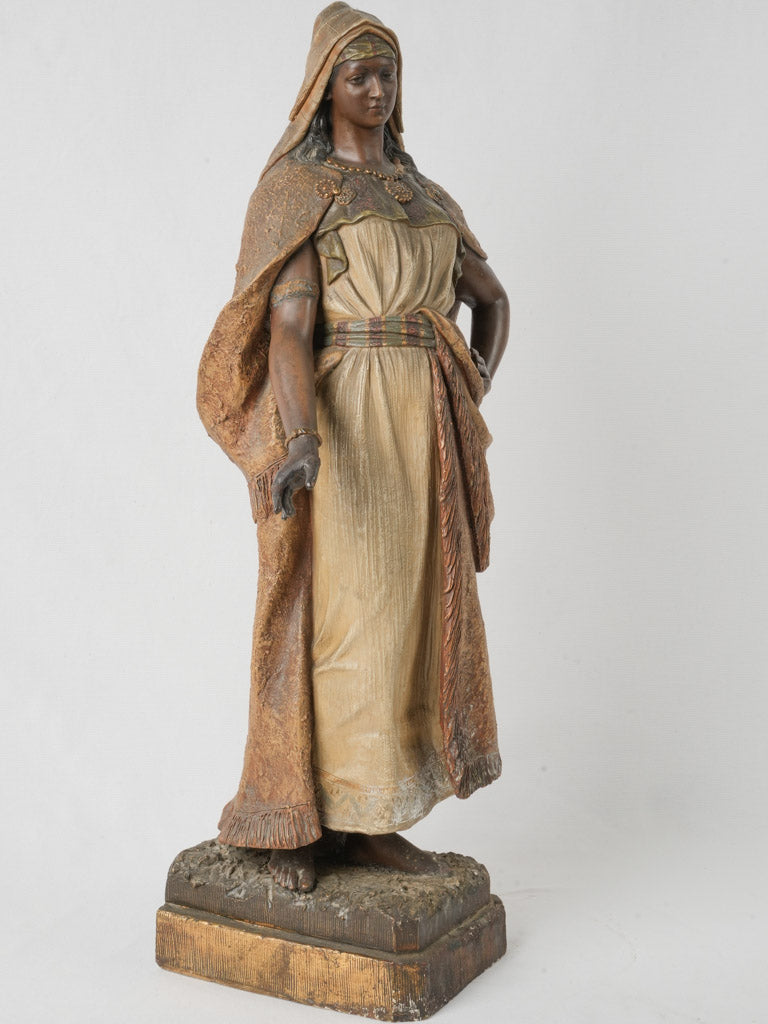

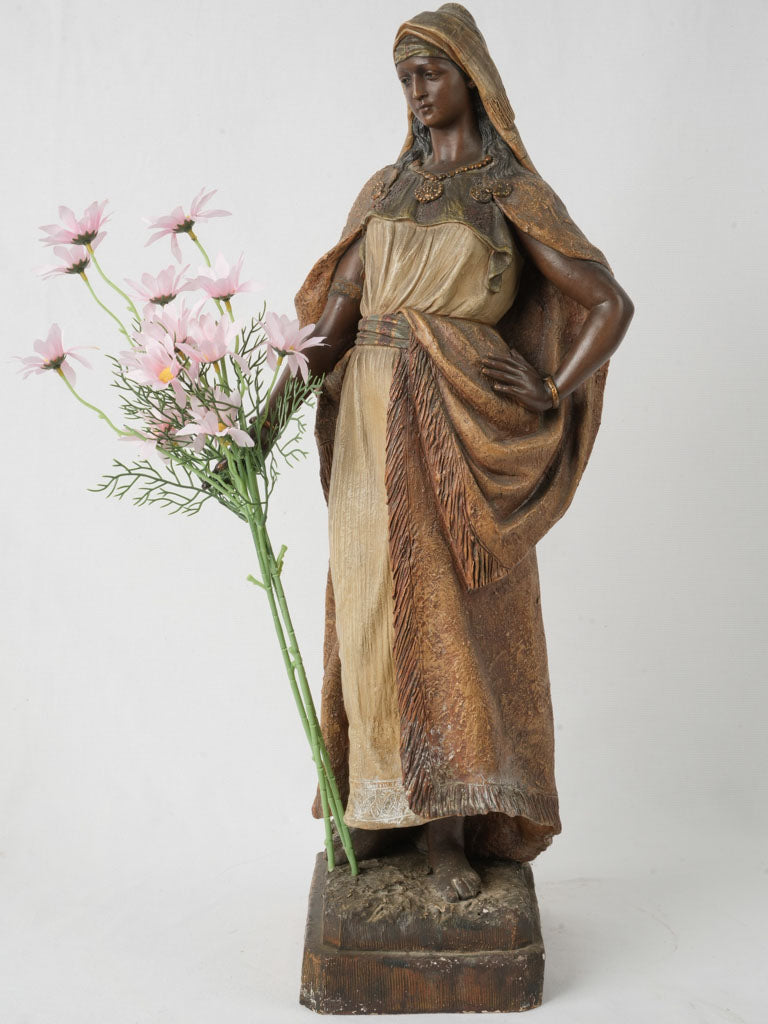
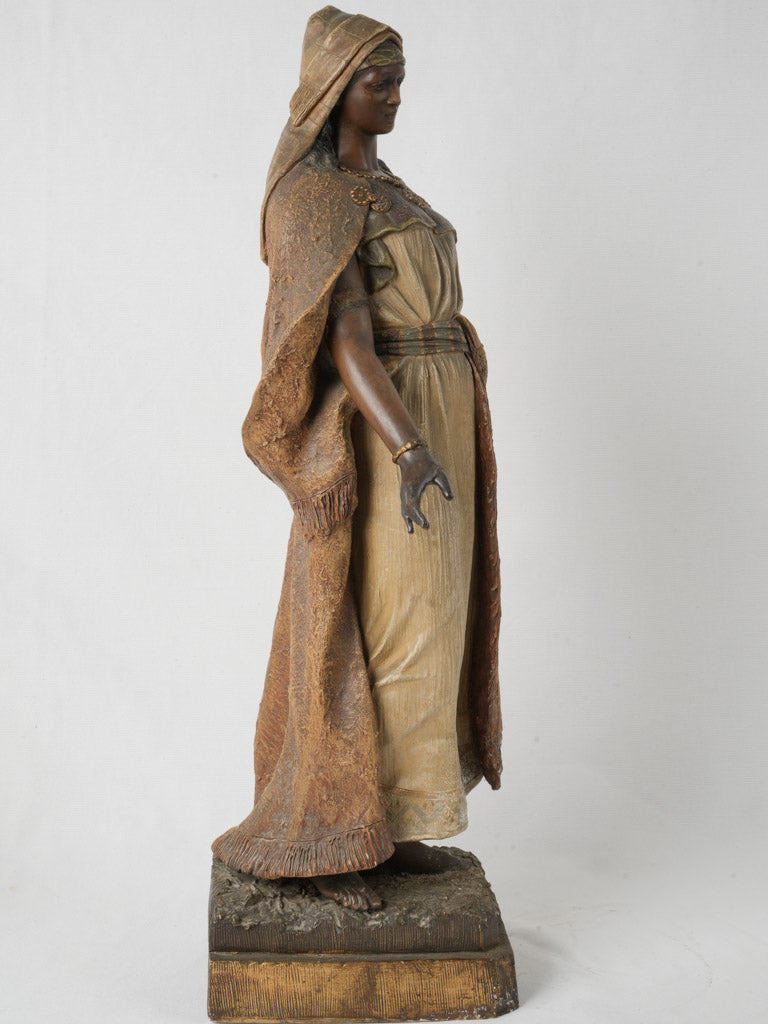
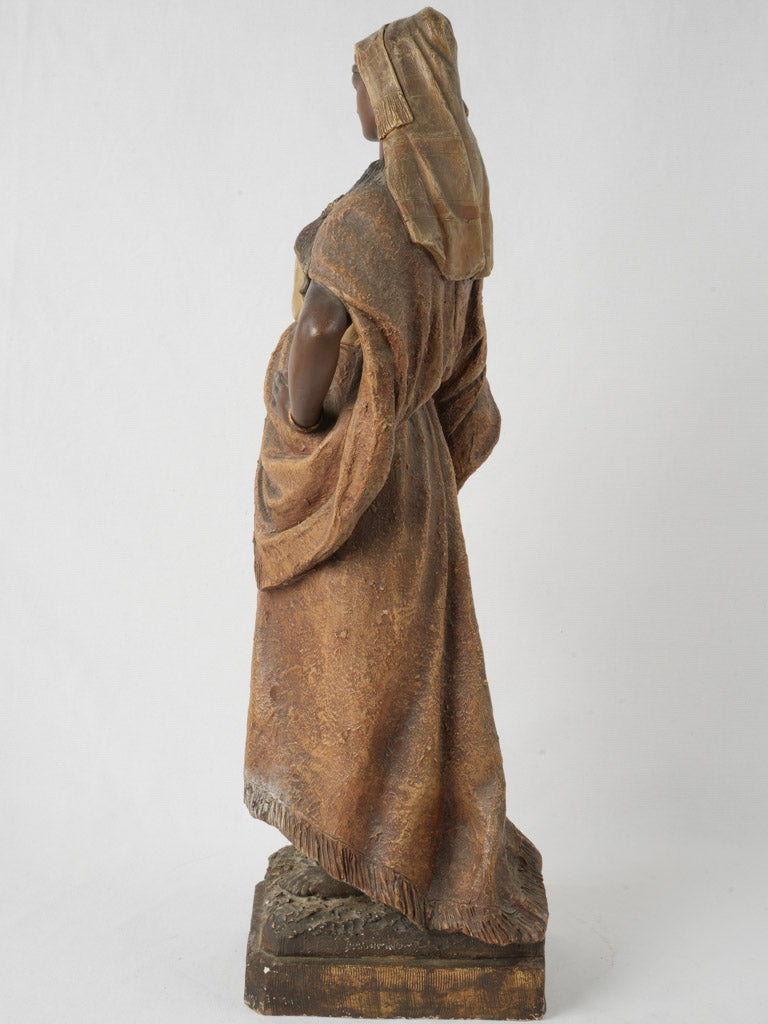
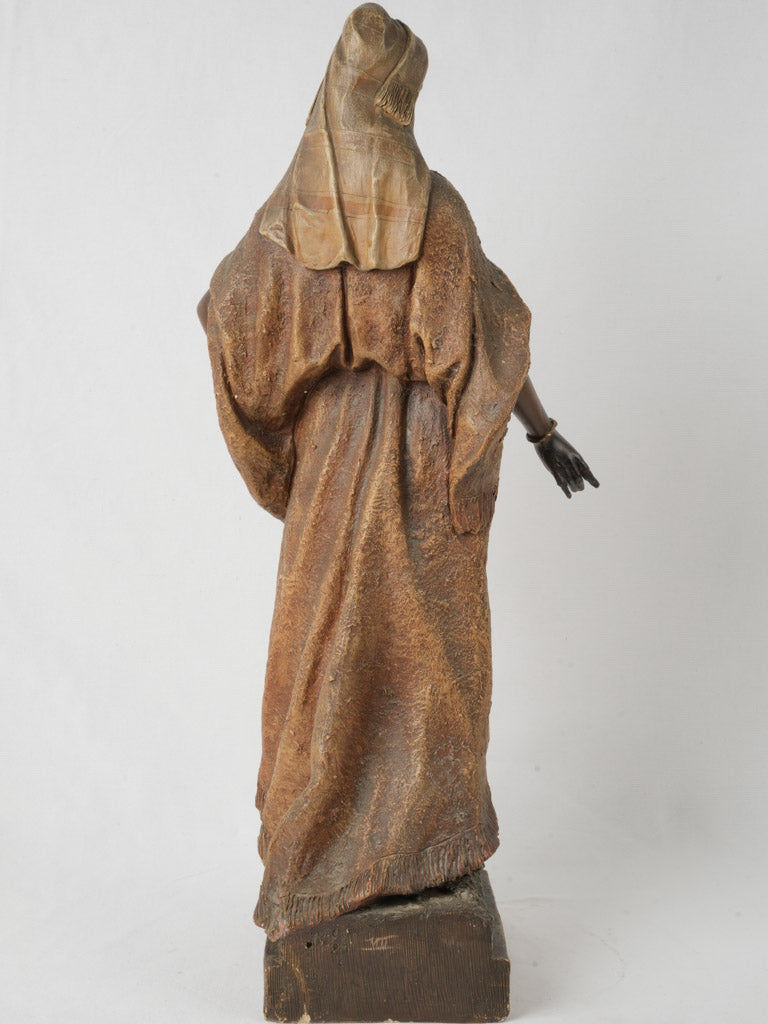
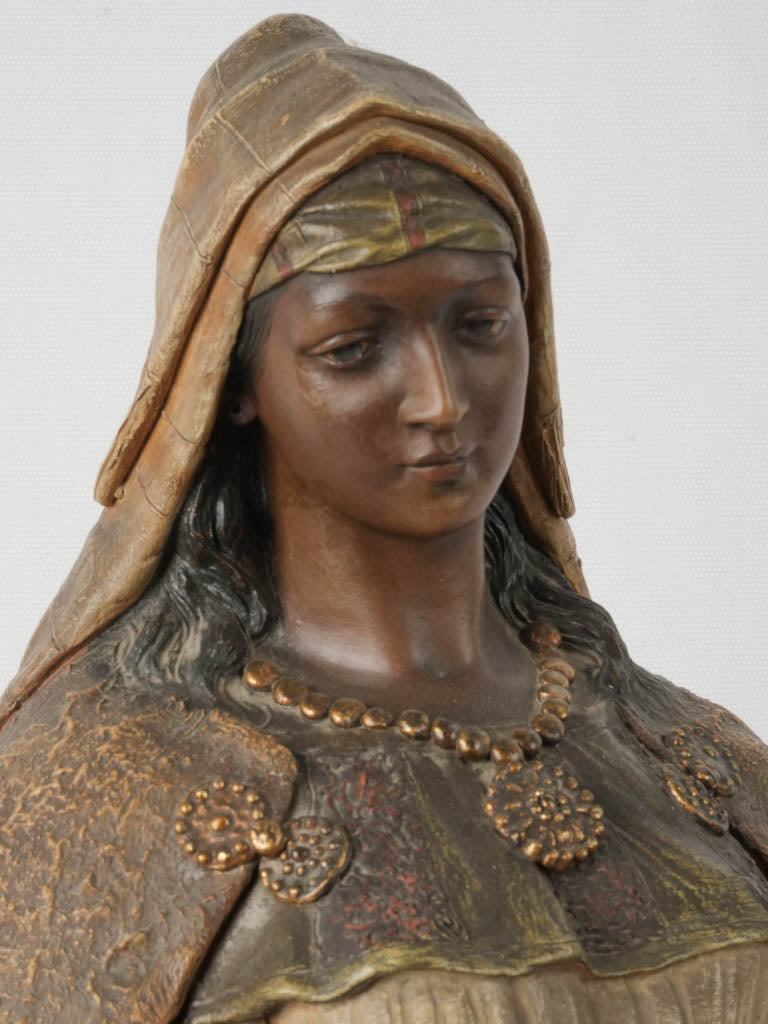
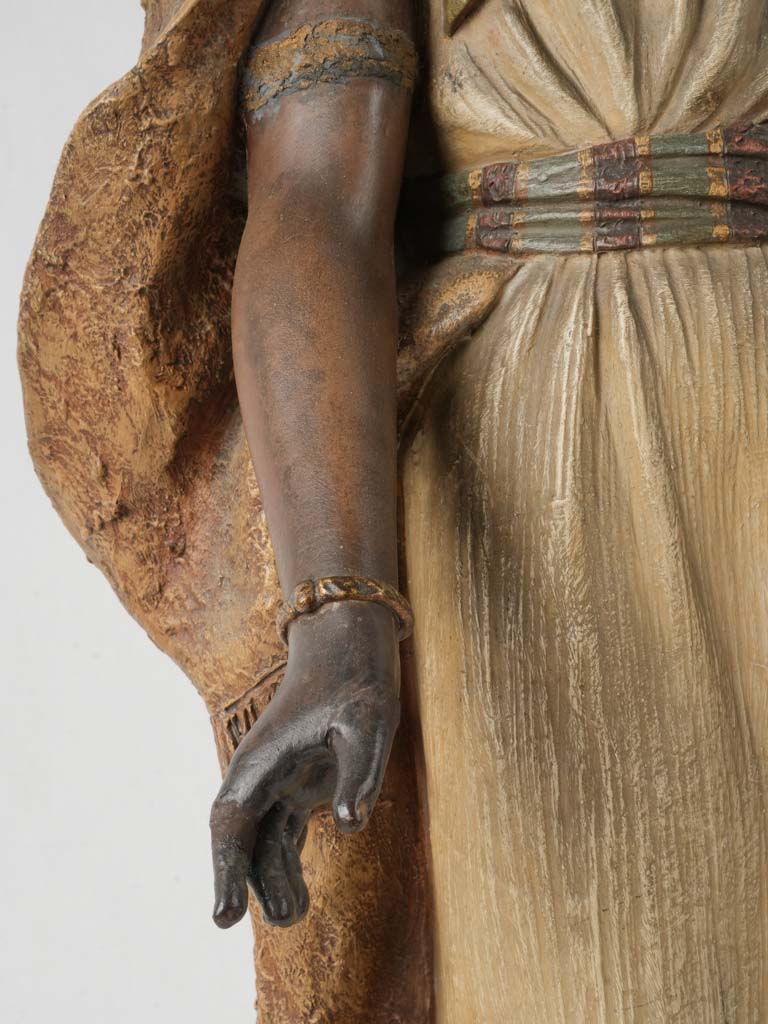
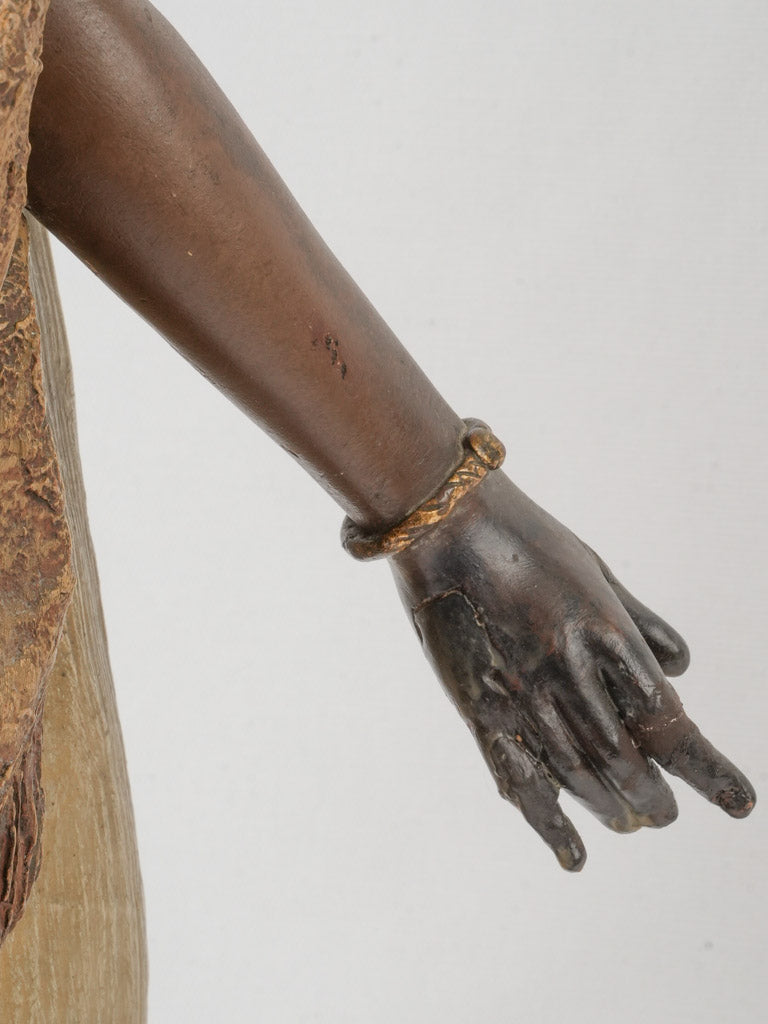
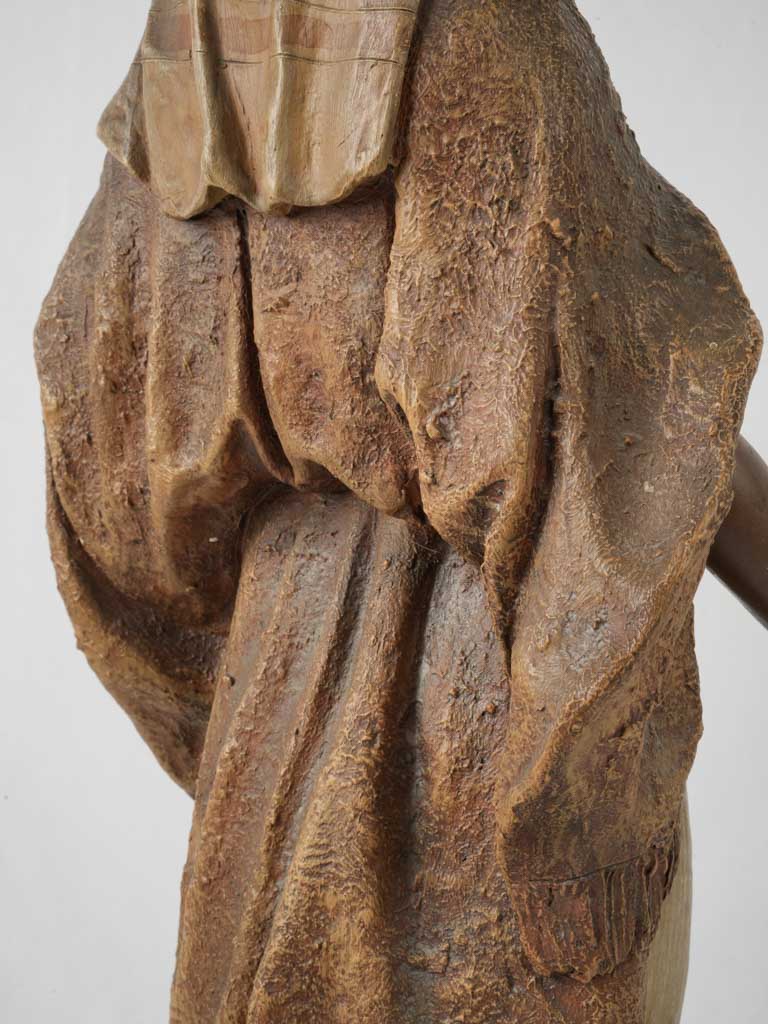
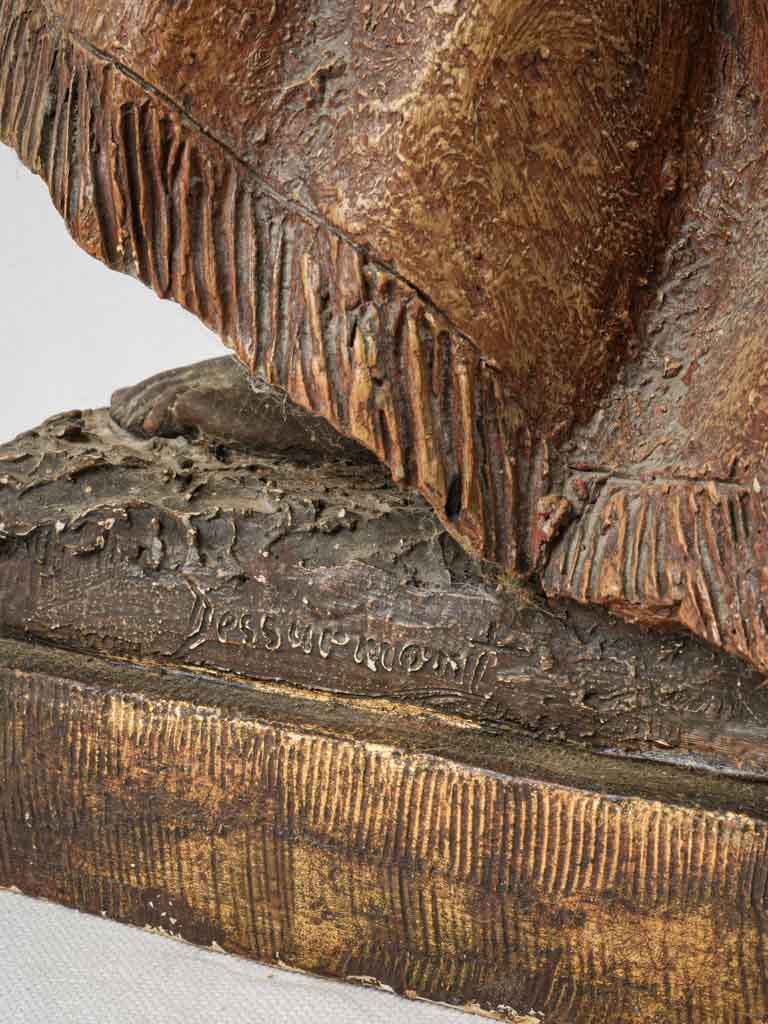

Late 19th-Century Terracotta Statue of Abla, Desurmont & Goldscheider (1845–1897) 28¼"
Free shipping to USA
The price is all-inclusive, no duties, taxes or shipping.
This impressive polychrome terracotta sculpture, signed Desurmont, is attributed to Friedrich Goldscheider (1845–1897), represents Abla, the beloved of the pre-Islamic Arabian hero Antar. As noted in the Benezit Dictionary of Artists, Goldscheider was known for his finely detailed terracotta works, often portraying figures from Orientalist subjects. His terracotta pieces, like this one, were usually polychromed, adding rich color and depth to the sculptural form.
This figure depicts Abla, a central figure in the legendary love story of Antar, a historical figure of the 6th century. Antar, a poet and warrior, was born to a nobleman and an enslaved woman from Hejaz, facing prejudice due to his illegitimate birth and the color of his skin. Despite this, Antar's heroic deeds and poetry, which are among the most celebrated in pre-Islamic Arabic literature, earned him the hand of his cousin Abla after proving his worth in battle.
The sculpture vividly captures Abla’s grace and poise, draped in a detailed traditional robe with intricate hand-painted elements that highlight the fine craftsmanship of the piece. Her pose, standing regally with a soft expression, reflects the delicate balance of beauty and strength that is characteristic of Goldscheider’s work.
This Orientalist sculpture is a perfect addition to any classical or eclectic interior, embodying both historical significance and artistic mastery. Its polychrome finish allows it to serve as a vibrant statement piece, whether displayed on a mantel, pedestal, or in a curated collection of 19th-century sculptures.
Attributed to Friedrich Goldscheider, this piece reflects the Orientalist fascination with Eastern culture during the late 19th century and highlights the sculptor's ability to bring legends and historical figures to life through detailed terracotta craftsmanship.
Condition and wear consistent with age and use.
Approx. overall 28¼" high x 10¾" x 8¾"
Approx. overall 72cm high x 27cm x 22cm
Choose options

